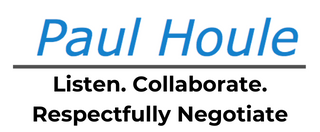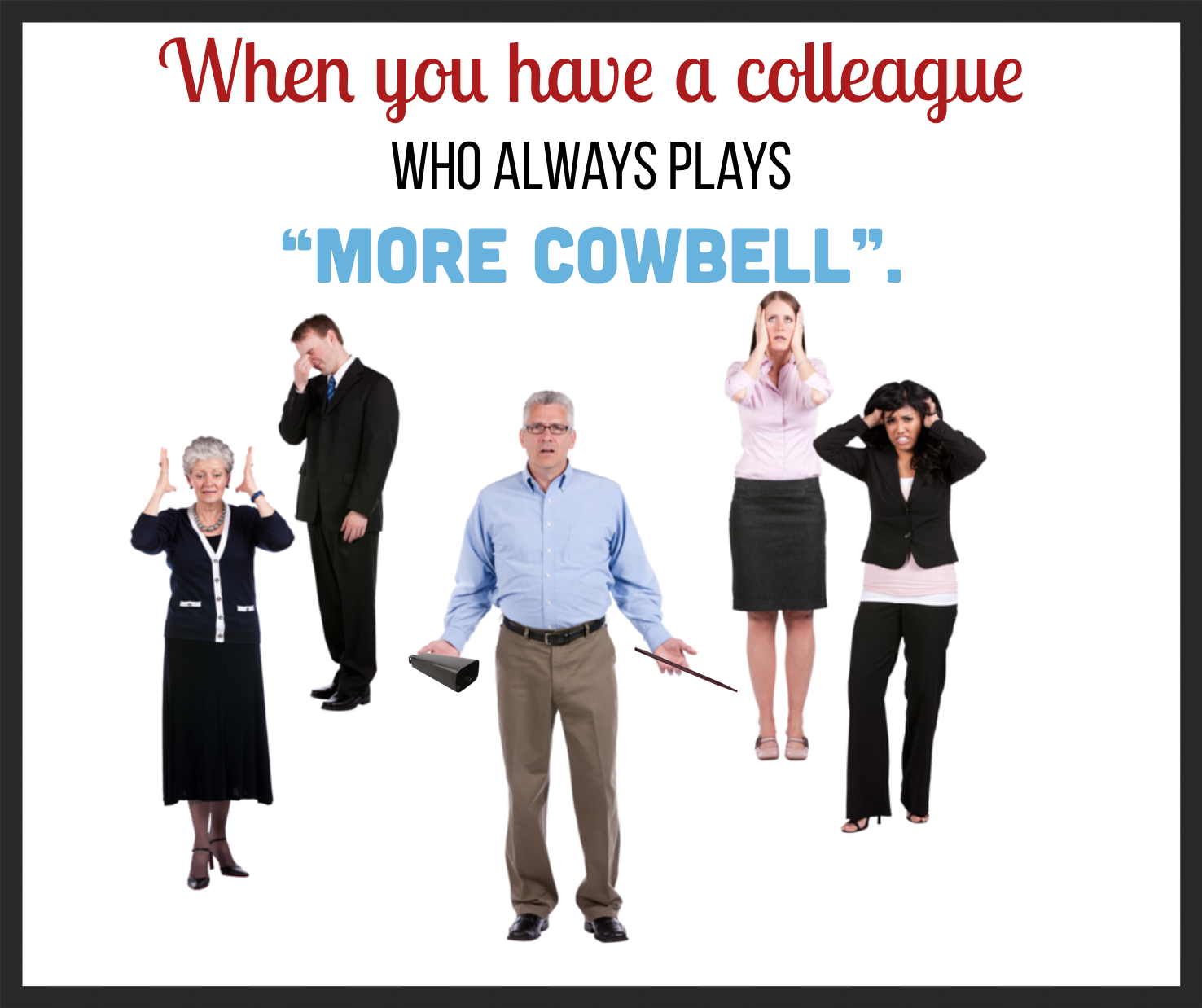When you have a colleague who always plays "more cowbell".
Perhaps you are familiar with the famous Will Farrell and Christopher Walken skit from Saturday Night Live where Farrell plays the cowbell along with the “band” Blue Oyster Cult. In case you‘re not, you have to see it. Just Google - "more cowbell".
In this skit, he dominates the recording session by playing his cowbell louder than any of the other instruments (encouraged by the producer). As he does this, he annoys his band mates more and more with each take. Finally things come to a head and tempers flare, but in the end the band members resolve their differences. Farrell is allowed to continue his very over-the-top cowbell playing only because the producer wants – “more cowbell!”
This is a very funny skit, but what about in the real world? What happens when you have someone at work who is, shall we say, “insensitive” to the point of annoyance to others?
I think we have all experienced someone like that. Often it doesn’t end so nicely. Like in the video, this can cause a lot of tension, which usually leads to some animosity or dispute.
Pointing out annoying behaviour to a colleague is very difficult to do.
But it has to be done and here’s why:




